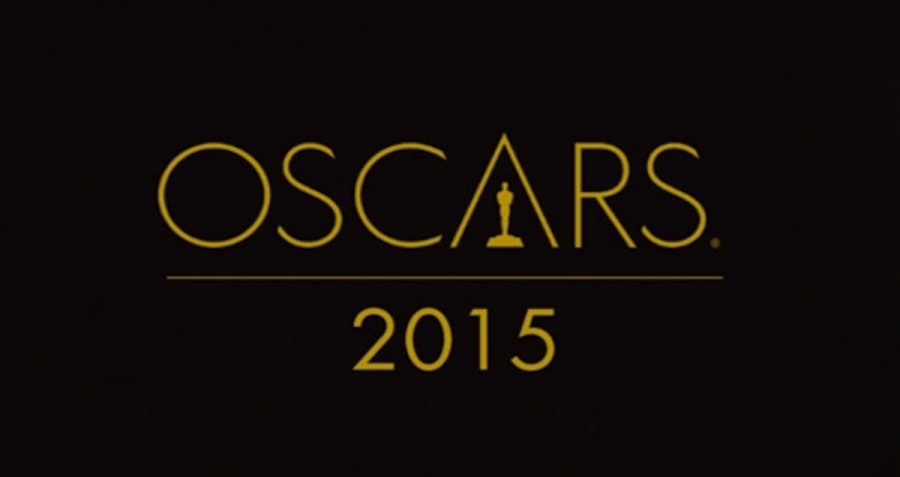By Jennifer Gonzales ’15, Contributor
For this year’s Academy Awards, Birdman, The Theory of Everything, and The Imitation Game unsurprisingly secured Oscar nominations for Best Picture. Similarly, the leading stars Michael Keaton, Eddie Redmayne, and Benedict Cumberbatch garnered Academy nominations for Best Actor. In case the established pattern in these nominations has been too imperceptible for the casual reader, I will further explain: the Academy played it safe this year by homogenizing the roster of nominations. White males primarily dominated the list of nominations for Best Actor and Best Director. Excluded was Birdman’s director, Alejandro González Iñárritu, to whom I offer a heartfelt congratulations for breaking the mold.
As a fervent film watcher and follower of Academy nominations, I was both surprised and shocked to see Gone Girl and Interstellar snubbed. I’ve seen both and was thoroughly impressed by Gillian Flynn’s screenplay adaptation and Christopher Nolan’s ingenious sci-fi blockbuster. I could go on for hours on the splendor of these films, but as a feminist and advocate of minorities, I’m highly disappointed in the Academy.
What provoked my outrage was the omission of two of my new-found favorite female directors. Angelina Jolie’s directing career is nascent. Nonetheless she deserved a director’s nomination for Unbroken. Similarly Ava DuVernay, director of Selma, the first African-American woman to earn a Golden Globe nomination was omitted from the list. Both DuVernay and Jolie did an excellent job of portraying their protagonists’ tumultuous journeys.
Further inciting the anger of feminists and minorities advocates around the globe, Gillian Flynn and Ava DuVayne were also robbed of Best Screenplay Adaptation nominations. Gillian Flynn, author of Gone Girl, did a remarkable job translating her novel into a movie. Although I was convinced Flynn’s nomination was uncontested, I’m willing to forgive the Academy for discounting her debut screenplay adaptation. Disregarding DuVayne’s adaptation, however is unforgiveable. Paul Webb is credited with originally writing the story, yet DuVayne made considerable changes to her adaption of Selma. Regrettably, Webb refused to relinquish sole custody of his work. In rebuking Webb’s name, the Academy regrettably slighted DuVayne as well.
I can stomach the Academy dropping the ball on Ben Affleck and Jake Gyllenhaal’s nominations for Gone Girl and Nightcrawler, respectively, granted they’ll be given future opportunities. I’m not so confident female directors and screenplay writers will be given the same chance. The only movie to ever win Best Picture directed by a female director was The Hurt Locker in 2010, directed by Kathryn Bigelow. According to data recorded by the National Center for Education and Statistics, 2.4% of female directors received Academy Award nominations for Best Director from 1999-2015. I commiserate with all of the aspiring female directors and screenplay writers who will have to continue to fight an uphill battle in a male dominated world.
The public outcry was further evidence of the Academy’s uniformity. #OscarsSoWhite was reportedly trending moments after the release of the list of nominations. In response to the national uproar, Cheryl Boone Isaacs, the first female African-American president of the Academy of Motion Pictures Arts and Sciences, spoke on behalf of the Academy. She reminded us that Steven McQueen’s 12 Years a Slave won Best Picture last year and Selma was nominated for Best Picture this year. Perhaps Academy has been criticized a little too harshly. Then again, without public scrutiny, who’s to say where our nation would be? I remain mystified by the Academy’s selections of Best Picture and Director nominations, yet am mollified by Cheryl Isaacs words. At present, I’m doubtful of seeing immediate change. However, I’m taking Ms. Isaac’s words to heart and hoping for a better future. Furthermore, public outrage may be just what the Academy needs to reevaluate its nomination selection process. It might be naive for me to believe Ms. Isaac but I’m awaiting the aforementioned promise of change. Public participation may be enough to give aspiring minority screenwriters and directors a fighting chance at an Oscar.






